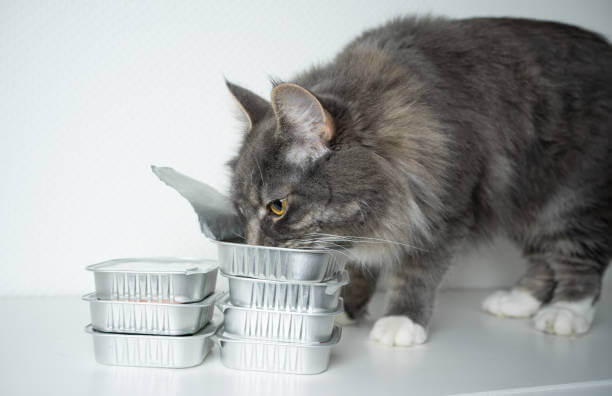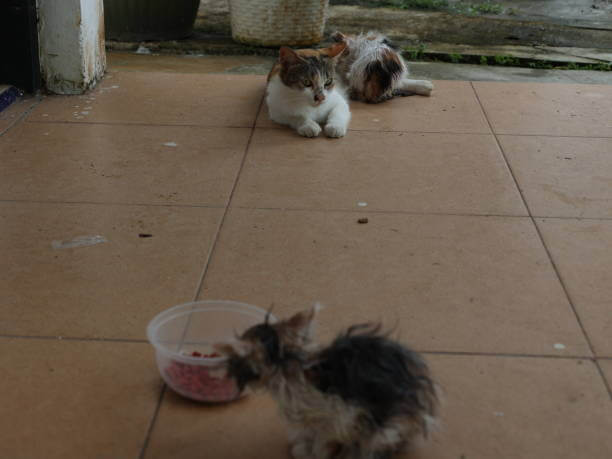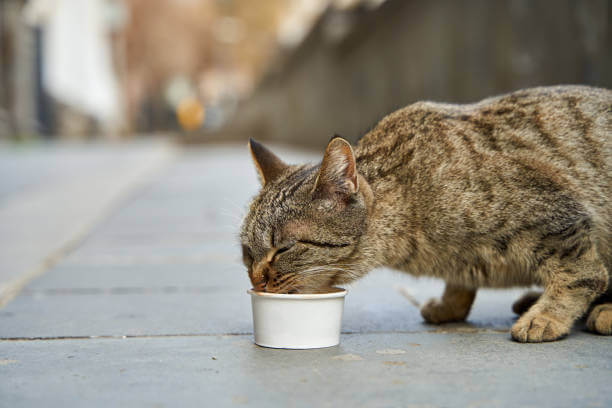
Are you wondering “Can cats eat salmon?” Find out everything you need to know here! We’ll provide the facts and answer all of your questions about feeding salmon to cats. Salmon, a delicious and nutritious fish, is a popular choice among seafood enthusiasts. As a cat owner, you may find yourself wondering if sharing this delectable treat with your feline companion is safe and beneficial.
After all, cats have a reputation for being finicky eaters with specific dietary needs. In this article, we will delve into the intriguing question: Can cats eat salmon? Join us as we explore the relationship between felines and fish, diving into their nutritional requirements, potential risks, and the best ways to incorporate salmon into your cat’s diet.
Understanding Can Cats Eat Salmon
Before we can answer the question of whether cats can eat salmon, it’s vital to understand their unique nutritional needs. Cats are obligate carnivores, which means they require animal protein to thrive. In the wild, their diet primarily consists of small prey such as birds or rodents. They rely on these protein-rich meals for essential amino acids, vitamins (such as vitamin A and B12), and minerals like iron and calcium.
The Importance of Animal Protein
Animal protein plays a crucial role in feline nutrition due to its high biological value. It provides cats with essential nutrients that support growth, muscle development, skin health, and overall vitality. Without adequate animal protein in their diet, cats may experience malnutrition or develop various health issues.
Essential Nutrients Found in Salmon
Salmon is not only rich in animal protein but also contains several other nutrients that are beneficial for cats’ well-being:
- Omega-3 Fatty Acids: Salmon is an excellent source of omega-3 fatty acids like EPA (eicosapentaenoic acid) and DHA (docosahexaenoic acid). These fatty acids play a crucial role in supporting brain function and promoting healthy skin and coat.
- Vitamins and Minerals: Salmon contains vitamins such as vitamin D, vitamin B12, and minerals like selenium and potassium. These nutrients contribute to various bodily functions, including immune system health and bone strength.
While salmon seems to offer a wealth of nutritional benefits for cats, there are factors to consider before incorporating this fish into their diet.
The Potential Risks of Feeding Salmon to Cats

While salmon can be a healthy addition to your cat’s diet when prepared correctly, it’s essential to be aware of potential risks involved. Here are a few considerations:
Raw Salmon and Parasites
Feeding raw salmon to your cat poses the risk of transmitting parasites, most notably Neorickettsia helminthoeca, commonly known as “salmon poisoning disease.” This parasite can cause severe illness in cats if left untreated. To eliminate this risk entirely, it is recommended to cook salmon thoroughly before feeding it to your feline friend.
High Mercury Content in Fish
Fish such as salmon can contain varying levels of mercury due to environmental pollution. While occasional consumption is unlikely to cause harm, excessive or prolonged exposure may lead to mercury toxicity. To minimize any potential risks associated with mercury content, it is advisable not to make salmon a regular part of your cat’s diet.
When considering incorporating salmon into your cat’s meals, it’s crucial to prioritize their safety and well-being. Let’s explore some safe ways you can introduce this fishy delight into their diet while ensuring optimal nutrition.
Safe Ways to Include Salmon in Your Cat’s Diet

To provide your feline companion with the benefits of salmon while minimizing potential risks, here are some safe methods for offering this fishy treat:
Cooked Salmon: A Healthy Option
Cooking the salmon thoroughly eucalyptus scent that any harmful parasites or bacteria are eliminated. It also reduces the risk of exposing your cat to excessive mercury levels. Before cooking the fish, remove the skin, bones, and any seasoning or spices that may be harmful to your cat. Serve small, bite-sized portions to avoid overfeeding.
Commercial Cat Foods Containing Salmon
If you prefer a hassle-free approach, commercial cat foods containing salmon can be an excellent option. Look for reputable brands that prioritize high-quality ingredients and meet your cat’s nutritional requirements. These specially formulated foods provide balanced nutrition while ensuring safety and convenience.
Consult with Your Veterinarian
As with any dietary changes or concerns about your cat’s nutrition, it is always wise to consult with your veterinarian. They can provide tailored advice based on your cat’s specific needs, health conditions, and dietary restrictions. Your vet will guide you in determining the right amount of salmon to incorporate into your cat’s diet without compromising their overall well-being.
FAQS
Q: Is it safe to feed my cat raw salmon?
A: It is not recommended to feed your cat raw salmon due to the risk of transmitting parasites. To eliminate this risk, cook the salmon thoroughly before feeding it to your feline friend.
Q: How often should I give my cat salmon?
A: The frequency of serving salmon depends on your cat’s individual needs. It is important to ensure that salmon does not make up more than 10-20% of their diet as excess consumption may lead to mercury toxicity or an imbalance in nutrients.
Q: Is canned salmon safe for cats?
A: Canned salmon can be a safe and healthy option if it does not contain any added salt or preservatives. However, check the label to make sure that it has been cooked thoroughly before offering it to your cat.
Q: Does salmon have any health benefits for cats?
A: Salmon is an excellent source of omega-3 fatty acids, vitamins, and minerals like selenium and potassium. These nutrients help support brain function, aid in immune system health, and promote healthy skin and coat. Incorporating salmon into your cat’s diet can be beneficial when done safely.
Q:What should I be aware of when feeding my cat salmon?
A: When introducing salmon into your cat’s diet, it is essential to prioritize their safety and well-being. Consider potential risks such as parasites or high mercury content in the fish, and always consult with your veterinarian before making any dietary changes.
Conclusion
Salmon can be a healthy and tasty addition to your cat’s diet when prepared correctly. However, it is important to be aware of potential risks associated with this fishy delight. By following safety protocols and consulting your veterinarian, you can ensure that you’re providing your cat with adequate nutrition while minimizing any potential risks. When introducing salmon into their meals, consider your cat’s individual needs and health conditions to determine the amount that is safe for them. With proper precautions, you can enjoy seeing a happy and healthy kitty indulging in this savory treat!
